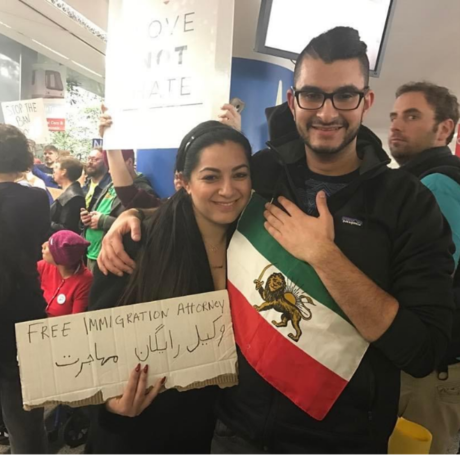By Roujin Mozaffarimehr, Partner.
On his first day in office, President Biden signed seventeen (17) executive orders and proclamations, one of which included the revocation of the Muslim and African Travel Bans. These bans were put into place in 2017 by the Trump Administration and restricted the immigrant and non-immigrant entry of foreign nationals from Iran, Libya, North Korea, Somalia, Syria, Yemen, Burma, Eritrea, Kyrgyzstan, Nigeria, Sudan, Tanzania, and Venezuela in varying capacities. What resulted was four years of chaos at airports, in consular processing, separation of families, and psychological trauma for U.S. citizens and their family members, solely on the basis of where people were born. In signing a Proclamation to end these bans, President Biden has given a new hope to immigration advocates and millions of people that were impacted by these bans.
We describe the specific actions below. But before diving into those, we would like to share what this means to our firm, our clients, and myself as an Iranian American with affected family members.
ImmiCore Law’s Advocacy for Our Clients
For nearly four years, foreign nationals from mostly Muslim majority countries in the Middle East and Africa were prevented from coming to the U.S. Foreign nationals subject to the ban were stuck in limbo, not knowing if they will see family members again, flee persecution as refugees, or pursue their career paths through higher education in the U.S. ImmiCore Law has spent the last four years working with affected clients to navigate through endless obstacles resulting from these bans—we worked with our clients to submit waiver requests at interviews to waive the travel restrictions in the interest of family reunification, sought the assistance of congressional representatives to support our clients, and we navigated through constantly changing consular requirements and years long administrative processing to help our clients reunite with their families. Our attorneys served on rapid response lists for several years to provide support for foreign nationals at airports amidst the chaos of these travel bans.
My Personal Journey as an Iranian American Immigration Attorney
The revocation of these bans has a personal significance for me. As the child of Iranian immigrants, I was directly affected by the ban and watched family members who had been waiting in the queue for green cards for over 13 years lose their ability to reunite with my parents here overnight. I got married in May 2017, and the travel ban prevented most of my family from joining me to celebrate this important moment in my life.
On the weekend that the first iteration of the Muslim Ban went into effect, I got in my car and drove to San Francisco International Airport with a cardboard sign that read, “free immigration attorney” in English and Farsi. I joined my colleagues in advocating for foreign nationals affected by the ban, and I continued to serve on rapid response lists alongside Kalpana V. Peddibhotla for several years.

President Biden’s Proclamation and the End of Trump Era National Origin Bars
President Biden’s Proclamation revoked the following Presidential Proclamations and Executive Order:
- Executive Order 13780 – Protecting the Nation From Foreign Terrorist Entry Into the United States
- Proclamation 9645 – Enhancing Vetting Capabilities and Processes for Detecting Attempted Entry into the United States by Terrorists or Other Public Safety Threats (also known as Muslim Ban 3.0)
- Proclamation 9723 – Maintaining Enhanced Vetting Capabilities and Processes for Detecting Attempted Entry Into the United States by Terrorists or Other Public-Safety Threats
- Proclamation 9983 – Improving Enhanced Vetting Capabilities and Processes for Detecting Attempted Entry Into the United States by Terrorists or Other Public-Safety Threats
The Proclamation provides guidance on how to resume visa processing. Specifically, the Secretary of State is required to provide President Biden a report on the following items in forty-five (45) days from the Proclamation signing:
- A proposal for how to expedite the adjudication of pending visa applications affected by the bans;
- A proposal on how to reconsider immigrant visa applications denied under the bans and how to expedite the adjudication of those bans;
- A proposal to ensure that visa applicants will not be prejudiced by a previous denial under the travel bans.
The Proclamation also requires a review of information-sharing and the creation of a plan to strengthen partnerships with countries within 120 days.
The Department of State has issued its guidance pursuant to President’s Biden’s proclamation as well.
